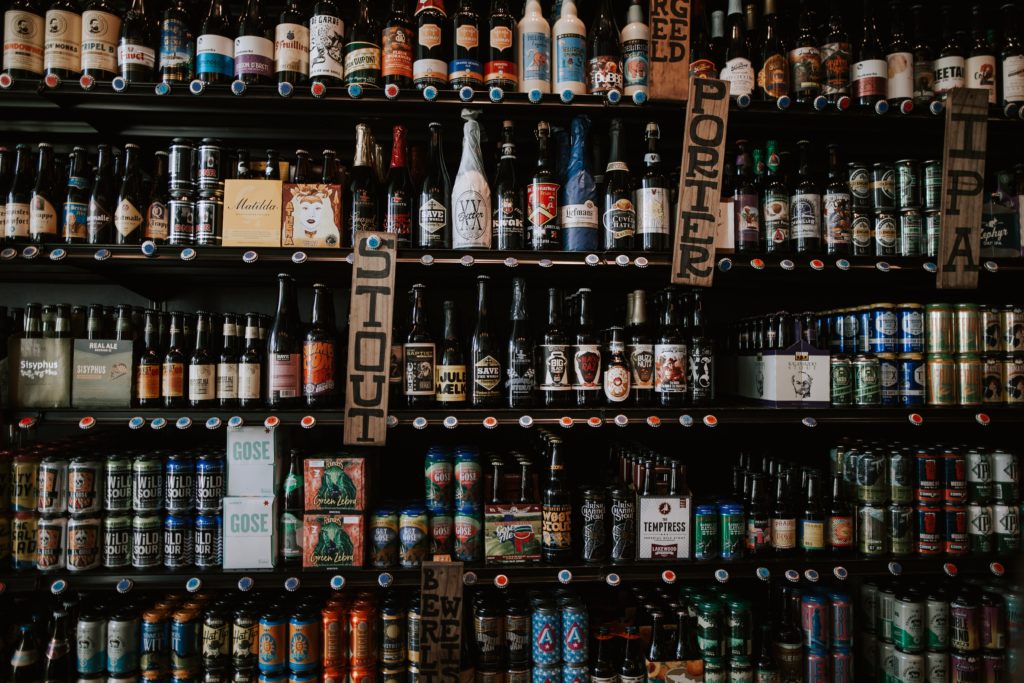Germans love beer because they have taken the craft seriously for centuries, creating lovable beers. As a result, beer is engrained in their cultural heritage. Most countries have figured out and carried on their distinct brewing methods (ever heard of Miller, Schiltz, Busch, Yuengling?), but the depth of German love for beer is still evident: the average citizen drinks over 100 liters per year, which is around 46 six packs per capita. Let’s take a brief journey through history to figure out how brewing processes were refined to make distinctive varieties and how they were codified for several hundred years to guarantee high quality to the world. Of course, you can enjoy some of the best German beer right here in Helen year-round.
Beerstory
Evidence of beer brewing is older than civilization (6,000 B.C.), but as soon as settled civilizations did emerge so did mention of beer: Sumerians (3,000 B.C.) regulated rations based on class; Egyptians paid for labor with it; and early Finnish (possibly around 800 B.C.) verses spend more time on beer brewing than the creation of the universe. At first beer was a way to make water safer to drink, to use nutrients of grains that might have been inedible, and to celebrate. As with all fermentation processes, the economies of taste began when we began to manipulate the process and explore the diversity of flavors from brewing methods and simple ingredients.
Beer was a homebrew affair until monks, the scholars of the age, took up fascination with brewing in the early 1000s. It’s no coincidence that the Pope allowed liquid during long periods of fasting . . . including strong beers. Germanic monks were the first to use hops to flavor and preserve their brews. They opened the first taprooms and beer gardens, gave and sold beer to the public. In short, everyone won thanks to these men-of-the-cloth hop-aficionados.
Regulate
As beer became business, nobles found ways to regulate its production. First, they gave the rights to sell “grut” or the combination of herbs to be added to make beer drinkable to privileged parties. Later, they cut out most of the monasteries (taxes to be made). Laws that suggested those who made bad beer should be punished and that malted grains only should be used were precursors to the German Purity Law.
The Reinheitsgebot was introduced in 1516 by Duke Wilhelm IV of Bavaria. This decree allowed for only hops (replacing grut), barley, water and yeast (once it was discovered) to be used in brewing. For 500 years, the beer purity law allowed Germany to excel based on consistency but also brewing for character. What a transcendent experience to know that the same simple ingredients are producing the same palate pleasure for you as they did for Germans centuries ago.
Now Make it Smooooooth
The beer purity law was the beginning, not the end, of innovation. Germany excelled by lagering beer, or storing it cold and varying the malt darkness and amount of malt seasonally. Cold storage allowed longer fermentation with smoother taste and clearer beer (clean water sources helped with that as well). Here are your most popular German lagers pioneered from the middle ages to the early 1800s. Refrigeration led to new yeasts being identified and even some light flexing of the law as wheat became regarded as an ingredient.
· Bock/Doppledock: Strong, heavy, medium to dark in color.
· Dortmund: Clean and malty
· Dunkel: Dark, Munich-brewed
· Helles: pale golden, with a malty taste.
· Oktoberfest/Märzen: A well-aged, deep, strong amber beer
· Pilsner: golden light beer with a sweetness
· Schwarzbier: A dark lager with a chocolate-like flavor—it’s not a stout!
Did you know that Märzen beer or Oktoberfest is festive because of seasonal lagering methods? It literally means “March beer” and was brewed just before the warm air shut down brewing winter and early spring brewing. As a result, it was heavily malted, amber in color and plenty fermented to make it until September, at which point all the remainder was drunk (and many became drunk) in celebration.
You can celebrate German excellence in brewing year round in Helen, where there is always German beer on draught and even more varieties in bottles. What you will notice is that most traditional German beers are malty, smooth, and bubbly. Try some of these draughts and taste some history:
· Warsteiner Dunkel
· Furstenberg Pilsner
· Erdinger Heffeweizen
· Paulaner Oktoberfest
· Warsteiner Pilsner
· Weihenstephaner Original Helles
· Warsteiner Oktoberfest





